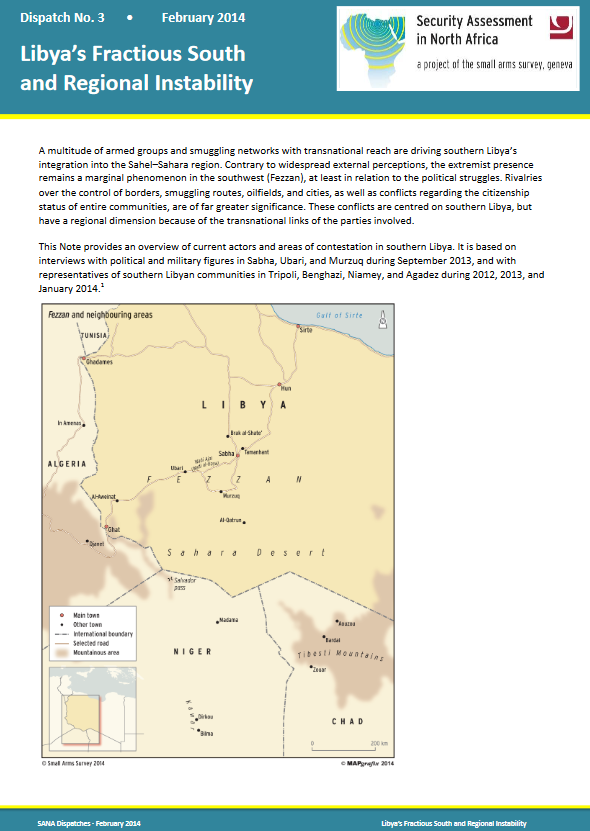
Libya’s Fractious South and Regional Instability (SANA Dispatch 3)
A multitude of armed groups and smuggling networks with transnational reach are driving southern Libya’s integration into the Sahel–Sahara region.
Contrary to widespread external perceptions, the extremist presence remains a marginal phenomenon in the southwest (Fezzan), at least in relation to the political struggles. Rivalries over the control of borders, smuggling routes, oilfields, and cities, as well as conflicts regarding the citizenship status of entire communities, are of far greater significance. These conflicts are centred on southern Libya, but have a regional dimension because of the transnational links of the parties involved.
'Libya’s Fractious South and Regional Instability', a new online Dispatch from the Small Arms Survey's Security Assessment in North Africa (SANA) project, provides an overview of current actors and areas of contestation in southern Libya. It is based on interviews with political and military figures in Sabha, Ubari, and Murzuq during September 2013, and with representatives of southern Libyan communities in Tripoli, Benghazi, Niamey, and Agadez during 2012, 2013, and January 2014.